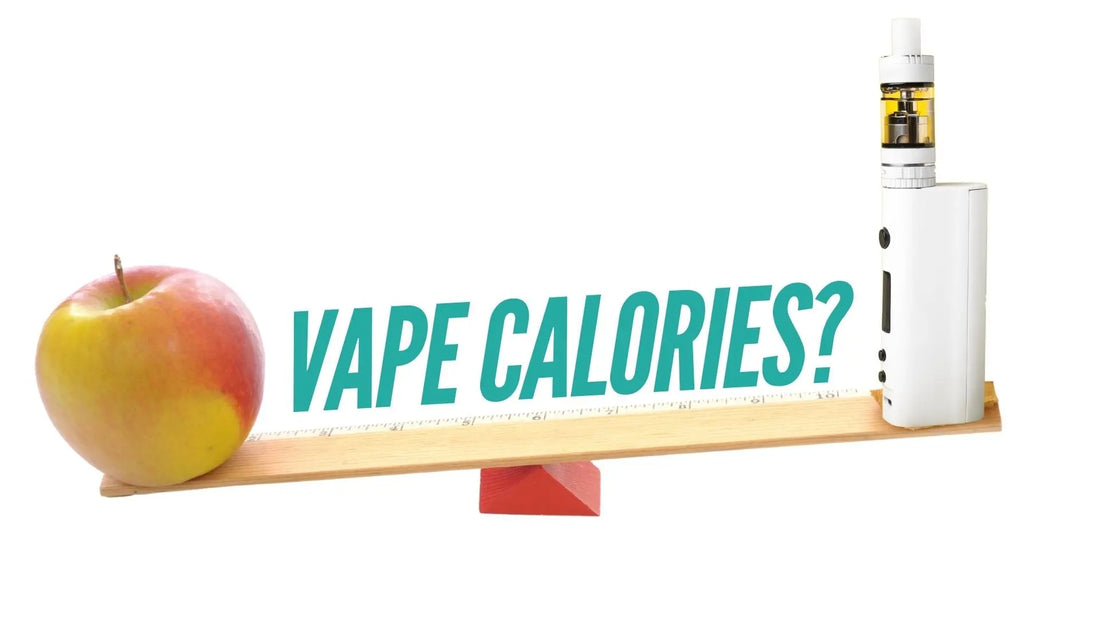
How Many Calories Are in a Vape?
Share
If you're wondering whether vaping adds calories to your diet, the short answer is yes—vape liquids contain calories. However, the caloric content in vaping is minimal and unlikely to impact your weight or calorie intake significantly.
Understanding Vape Liquid Ingredients
Vape liquids, also known as e-liquids or vape juice, typically contain four primary ingredients:
- Propylene Glycol (PG) – A common food additive, PG provides the throat hit that many vapers enjoy. It contains about 4 calories per gram.
- Vegetable Glycerin (VG) – A sweet-tasting liquid derived from vegetable oils, VG also contains about 4 calories per gram and contributes to the vapour clouds produced when you vape.
- Flavourings – These add the taste to your vape but generally don't add calories. However, certain e-liquids may use sugar-based flavourings, which could add a minimal amount of calories.
- Nicotine – While nicotine affects metabolism and appetite, it does not contain calories.
How Many Calories Does a Vape Contain?
On average, vape juice contains about 5 calories per millilitre. So, a standard 30ml bottle of e-liquid contains approximately 150 calories. This is roughly equivalent to the calories in a small apple or a can of soda.
For comparison, one puff of a vape usually contains about 0.05 calories. Even if you’re a heavy vaper, the caloric intake from vaping is negligible and unlikely to affect your diet or contribute to weight gain.
Do You Absorb Calories From Vaping?
This is where things get interesting. While vape liquids technically contain calories, most experts agree that these calories are not absorbed in the same way as food or drinks. When you vape, the liquid is vaporised and inhaled into your lungs. Unlike food, it is not digested, so the body doesn’t process it in the same way.
Some experts suggest that a small amount of these calories may be absorbed through the lining of the mouth and throat, but the amounts are negligible. Estimates suggest that you might absorb as little as 2% to 10% of the total calories in a bottle of vape juice.
Does Vaping Impact Your Weight?
The calories in vape juice are too small to have any significant impact on your weight. Most people who experience weight changes while vaping do so because of nicotine, which can act as a stimulant and an appetite suppressant.
Nicotine’s Role in Weight Management
Nicotine can temporarily increase your metabolic rate and suppress appetite. For some, this can lead to minor weight loss. However, the effect of nicotine on weight varies from person to person, and it is not a reliable weight loss tool. Moreover, nicotine is highly addictive and comes with its own health risks.
On the other hand, individuals who switch from smoking to vaping sometimes experience weight gain. This may be due to the reduction in nicotine intake when moving to lower-nicotine or nicotine-free e-liquids, which can result in an increase in appetite. It’s important to note that this is more about changes in eating habits rather than the caloric content of the vape itself.
Comparing Vaping to Common Foods
To give some perspective on how insignificant the calories in vaping are, consider the following comparison:
A 30ml bottle of e-liquid contains about 150 calories, which is equivalent to:
- A medium-sized apple.
- A can of soda.
- One tablespoon of peanut butter.
However, unlike food, you don’t typically consume an entire bottle of e-liquid in one sitting. A bottle usually lasts for several days or weeks, which further dilutes the caloric impact.
Does Vaping Affect Your Calorie Control?
If you are on a strict calorie-controlled diet, vaping won’t have any noticeable impact. Since the calories in vape juice are minimal, they won’t significantly affect your daily caloric intake.
For those on special diets, like keto or intermittent fasting, vaping doesn’t pose a concern either. The calories from vaping are so small that they won’t break a fast or affect your ketosis state.
When considering the calorie content in vapes, many people are curious about whether these devices have any impact on their daily intake. If you're traveling soon, you might also wonder if it's safe to bring your vape on a plane.
Conclusion
While vape juices do contain calories, the amount is so small that it’s unlikely to affect your diet or lead to weight gain. Most of the calories come from VG and PG, the two primary components of vape juice, and even sweet flavours don’t add much to the total calorie count. For those concerned about their caloric intake, vaping is not something to worry about.
If you’re considering vaping as a way to manage weight, it’s important to focus more on maintaining a healthy lifestyle, including a balanced diet and regular exercise, rather than relying on vaping. Ultimately, the health risks of nicotine far outweigh any minor impact it might have on your weight.
For high-quality vaping products and accessories, visit Vaperzway.co.uk for a wide selection of e-liquids, vape devices, and expert advice to enhance your vaping experience. Explore now and enjoy your vape responsibly!